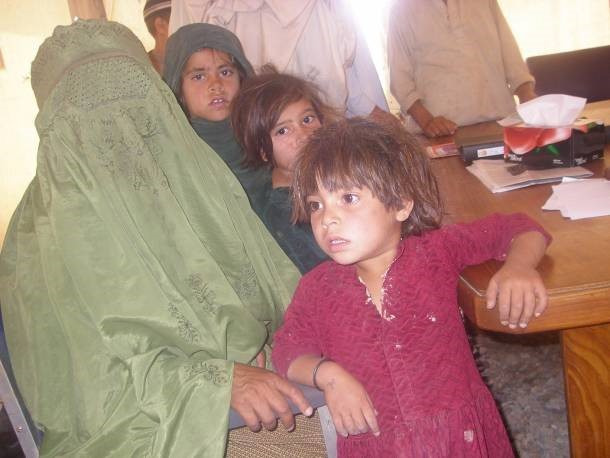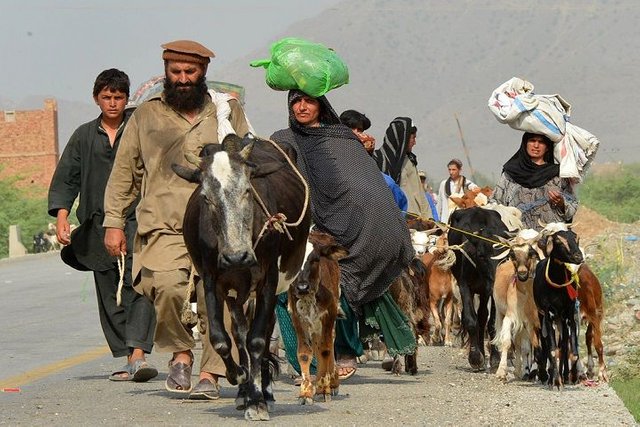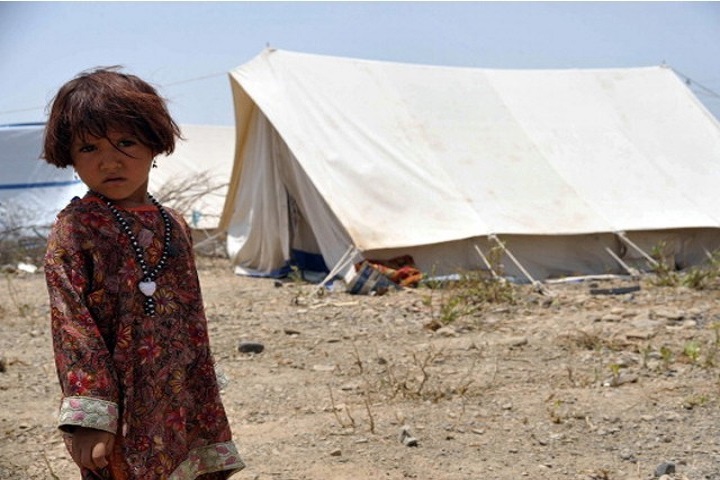War on terrorism and the miseries of common people

38 years old Balqis Bibi from the Khazana village in Bajaur Agency Pakistan , was desperately dependent on her young son, Fazal Rehman, as the sole family breadwinner, a role the precocious 10 year old took on with both pride and determination, after his father abandoned his mother and three sisters in early 2008. He worked as a cobbler in the busy business center in Muzaffarabad (Kashmir), a day’s drive from Bajaur. The meager income he earned as a cobbler was barely enough to support his family back home in Bajaur. Unfortunately, this arrangement with a child as the sole wage-earner is illustrative of the endemic nature of child labor problems in Pakistan.
In the summer of 2008, as fighting between the Pakistani army and Taliban militants intensified in Bajaur, Balqis and her children were among the thousands fleeing the area in search of refuge in safe havens. Forced to leave his job in Muzaffarabad, Fazal Rehman rushed back to help his mother and sisters escape to a nearby village in Mohmand district when Bajaur fell under heavy shelling and bombing last August. With fighting quickly threatening surrounding districts, including Mohmand, the family escaped again, managing to reach neighboring Swabi district where extended family members helped the family settle in low rental flats. “My son’s hard earned money was gone within a month” says Balqis, “It took four months worth of Fazal Rehman’s wages to cover one month of rent.” With money and options quickly running out, the family traveled to Nowshera 30 kilometers away, in search of emergency camps for internally displaced persons (IDPs) in Jalozai and Kacha Garhi.
Exhausted, dehydrated and suffering from conflict-affected trauma, Balqis and her four children finally arrived at the IDP camps. But registration into the camps proved difficult as Balqis did not possess a national identity card (NIC), which, for women, is only obtainable if a husband or father’s valid NIC is available. The family was forced to seek shelter with host families off-camp, surviving on small savings. “We had very little money and food, and no means of obtaining income. Those were some of the darkest and desperate days of my life,” says Balqis, voice cracking with emotion.
In April of this year, Balqis was able to locate her brother, who came forward to prove her identity and helped her in acquiring a NIC. With support from IRC’s Protection field team in Jalozai, Balqis managed to secure a NIC, and is taking advantage of services offered inside the camp, such as the IRC legal information center where she is provided information on her basic rights, including those that allow her to legally divorce her husband.

While Balqis is satisfied to be safely settled in Jalozai camp ( A a large tent village established for Internally Displaced Persons IDPs) with her family, she is concerned about their future. She fears there are armed militants in her village and feels that going home is no longer an option. Balqis has no means of earning an income and believes that the community-based support structures in her village are gone. International Rescue Committee (IRC) and other coordination bodies working with IDPs are seeking ways to introduce cash for work programs, a livelihoods initiative that will provide some income support to camp-based IDPs. With no means to support her family and no male head of household. 
amazing post
you should see this @done
@r2cornell you must watch this!